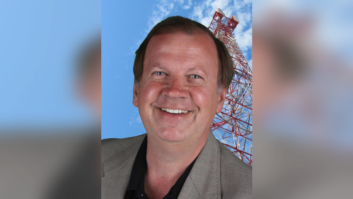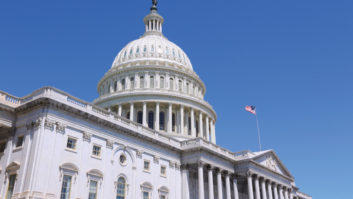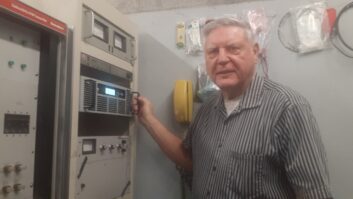Should FM translators in the United States be allowed to originate some programming content? The FCC is asking for public comment on these questions, prompted by a request from two dozen radio companies.
It’s an idea that seems to have been prompted by a separate unrelated proposal about using boosters for geo-targeting; but if adopted it could mean a proliferation of yet more programming choices on the FM dial, much of it on translators that were obtained relatively recently by AM stations as part of the AM revitalization effort.
As we reported in May, a group of licensees under the joint name “Broadcasters for Limited Program Origination” told the FCC in a filing that “to serve the public interest with increased program diversity,” both FM boosters and translators should be allowed to originate programming for up to 80 hours a week. The 24 licensees own 108 full-service stations and 85 FM translators.
[Read Radio World’s original article about this proposal.]
Their attorney, John Garziglia of Womble Bond Dickinson, notes that the FCC now has released a public notice putting this idea out for industry comment.
The petition argues that if the FCC considers allowing FM boosters to originate limited programming content to provide zoned programming to a primary station’s service area — as has been proposed separately by GeoBroadcast Solutions — the same opportunity for limited program origination should be given to translators.
“The Broadcasters for Limited Program Origination seek a uniform FCC rule change for both FM boosters and FM translators to allow each to originate programming content provided that the primary station is retransmitted for no fewer than 40 hours in any calendar week,” Garziglia wrote in a summary to industry journalists.
“The Broadcasters for Limited Program Origination observe that some radio stations may choose to broadcast different localized advertisements. Other stations may broadcast localized city council meetings for two or more communities in their coverage areas. Some broadcasters may determine what serves a particular station’s listeners are multiple localized high school sports games. Or, another broadcaster in a diverse area may broadcast two different kinds of ethnic entertainment programming at certain times of the day.”
The companies argue that this change would go along with the commission’s encouragement of diverse programming content; but also that if boosters get a “regulatory easing” on content choice, so should translators.
“Also, because the FCC’s new FM translator interference rules have re-defined the coverage contours of FM stations, the Broadcasters for Limited Program Origination advocate that extended coverage contours out to the greater of the 45 dBμ contour, or a 25-mile radius from the FM translator transmitter site, should now apply to what is regarded as a fill-in station for the purposes of the FM translator rules,” Garziglia wrote.
And the group wants the FCC to change its FM translator rules to give four-letter call signs with the suffix “-FX” for FM translator stations that originate limited programming content, presumably to help market these content sources as separate stations. The current rules give translators more clunkier and call signs like W250BC and K237FR.
They noted in their original request that they “take no position as to whether the GeoBroadcast Solutions technical proposal … is wise as a radio listener reception matter. Such concurrent broadcasting of different content on the same frequency within the same service area may be an interference disaster.” Rather, they wrote, their goal is “to provide diverse programming over FM translator and booster radio facilities without the FCC’s heavy thumb restricting their choice of content.”
[Related: Large Groups Raise a Caution Flag on Geo-Targeting]
The broadcasters in the filing are Miller Communications/Kaskaskia Broadcasting; the Cromwell Group of Illinois and Hancock Communications; TBE LLC; SSR Communications; Port Broadcasting; the Fingerlakes Radio Group and Chadwick Bay Broadcasting; Blackbelt Broadcasting; Mazur LLC; The Original Company, Old Northwest Broadcasting and The Innovation Center; Virden Broadcasting; Lovcom Inc.; Genesee Media Corp.; Viper Communications; Mountain Top Media; Eastern Shore Radio; and MTN Broadcasting and Eldora Broadcasting.
Among familiar broadcaster names on the proposal are Randal Miller, Bud Walters, Terry Barber, Mark Lange, Matt Wesolowski and Cindy May Johnson.
The commission is asking that comments about RM No. 11858 be submitted via its comment system by July 23.






